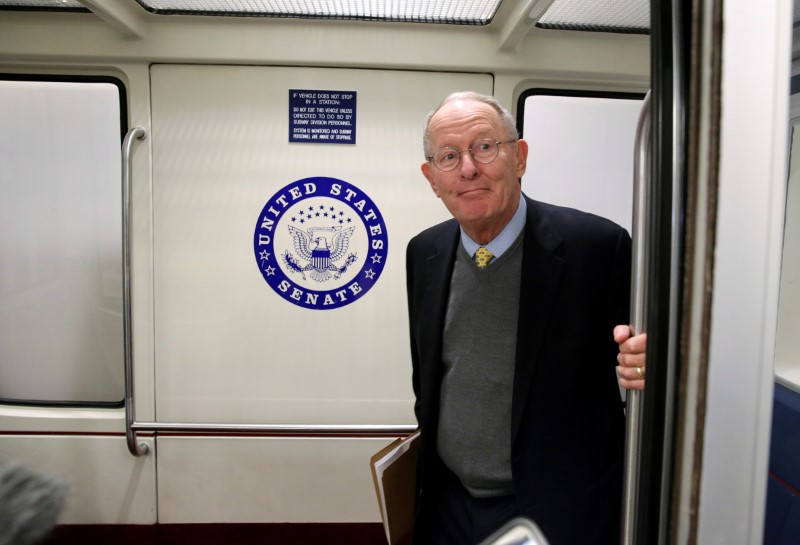By Yasmeen Abutaleb
WASHINGTON (Reuters) - A bipartisan Senate proposal to shore up Obamacare insurance marketplaces would cut the U.S. deficit by $3.8 billion over the next decade and would not substantially change the number of Americans with health insurance, a nonpartisan arm of Congress said on Wednesday.
Legislation introduced last week by Republican Senator Lamar Alexander and Democratic Senator Patty Murray would restore for two years subsidies to private insurers to help lower-income people buy insurance. President Donald Trump this month cut off those subsidies.
The bill also would provide states more flexibility to change some rules in the 2010 Affordable Care Act, the signature legislative achievement of the Republican Trump's Democratic predecessor, Barack Obama.
The nonpartisan Congressional Budget Office previously estimated that various Republican proposals to repeal and replace Obamacare would cause more than 20 million people to lose health insurance. In contrast, the CBO on Wednesday said reinstating the subsidies, as called for in the Alexander-Murray bill, would not substantially alter the number of insured.
The CBO also estimated that the fix would not impact 2018 health insurance rates because they are already set. Health insurers said they raised premiums on average 20 percent to make up for the lost federal subsidies.
The CBO said it expected 2019 health insurance premiums to be lower with the insurer payments than without them.
While the Alexander-Murray legislation would reduce the federal deficit, the CBO previously found that eliminating the subsidies, called cost sharing reductions, would raise the federal deficit by $194 billion over a decade.
Because premiums would rise in the absence of the subsidies, the government would be compelled to spend more on financial assistance to low-income Americans.
About 20 million Americans obtained insurance through Obamacare and the law helped drive the U.S. uninsured rate to a record low, but Republicans have called it an unwarranted government intrusion in a healthcare system that represents a fifth of the U.S. economy.
It is unclear whether the Alexander-Murray bill will ever come to a vote in Congress. Trump has sent mixed signals about it, initially supporting it last week and then opposing it.
Senate Majority Leader Mitch McConnell said he would not bring it up without Trump's support. Trump has derided the insurer payments as a "bailout" and has vowed to let Obamacare "implode."
"It does not bail out insurance companies, it does benefit consumers, it does benefit taxpayers to the tune of $3.8 billion," Alexander said on Wednesday on the Senate floor.
Insurers say they do not profit from the subsidies, but pass them on directly to consumers to reduce deductibles, co-payments and other out-of-pocket medical expenses for low-income people.
Trump, who as a candidate promised to get rid of Obamacare, has been frustrated by the inability of a Congress led by his own party to pass a bill to repeal and replace it, and has taken steps that bypass lawmakers to chip away at the law.
House of Representatives Speaker Paul Ryan has signaled his opposition and on Wednesday said his chamber would not take up the matter or try again to pass broader Republican legislation to repeal and replace Obamacare this year.
With broad Democratic backing and the support of a dozen Republican senators, the Alexander-Murray bill has sufficient backing to exceed the 60 votes needed for passage in the 100-seat Senate, if McConnell allows it to come to a vote.
Two prominent Republicans in the House and Senate on Tuesday announced a competing Obamacare fix that is more conservative and appears to address many of the Trump administration's objections to the Alexander-Murray proposal.
The proposal by Republican Senator Orrin Hatch, chairman of the Senate Finance Committee, and Republican Representative Kevin Brady, chairman of the House Ways and Means Committee, includes provisions to suspend requirements for individuals and employers to buy health coverage under Obamacare.

Ryan told Reuters in an interview he favored the Hatch-Brady proposal.